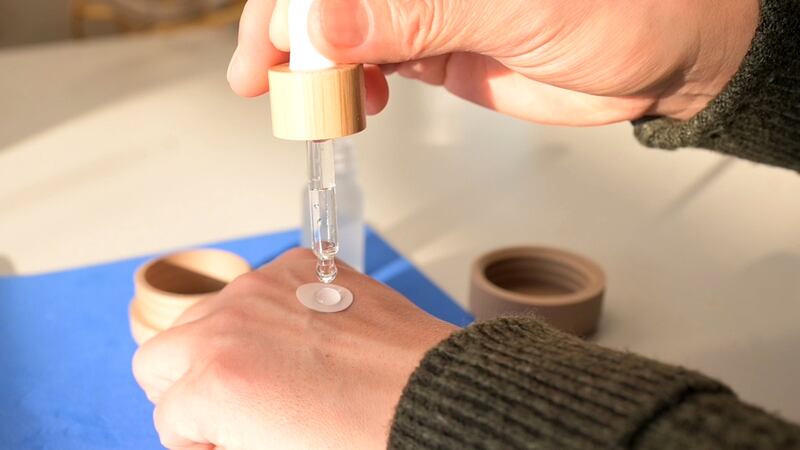Scientists have found a way to turn creamy moisturisers into dry paper-like material that can be rehydrated to its original state when required.
Researchers from the University of East Anglia (UEA) have developed a technology that takes the oil and water out of beauty products such as creams, shampoos, and conditioners, creating flat discs of confetti-like substance which can be reconstituted with a small amount of water.
They claim their work could “revolutionise the beauty industry by dramatically reducing both its carbon footprint and packaging waste”.
Lead researcher Professor Sheng Qi, from UEA’s School of Pharmacy, said: “Most cosmetics and toiletries contain up to 95% water, leading to heavy units by volume and bulky packaging.”
She added: “Our sheet or discs of moisturisers weigh only a few milligrams… really reducing the weight significantly.
“So, there’s a significant saving in terms of transportation costs.”
Prof Qi and her team used a process, known as electrospinning, to “jet” oil and water out of the products, removing up to 98% of the water in the process.

She said the end product is “a paper-like material with thin fibres and many pores between those fibres”.
Prof Qi said: “The material dissolves very quickly and reconverts into the original emulsion (using water).”
She said that unlike other waterless beauty products currently available, their technology does not involve heat, which means proteins, peptides and other “delicate” ingredients remain well-preserved.
As there is no water in the discs, Prof Qi said these products do not need preservatives to improve their shelf life.
She said each sheet or disc will be a single-dose product which will “reduce the risk of bacterial growth”.
As part of the next steps, Prof Qi and her team plan to conduct a full life-cycle analysis of the entire production process – from sourcing raw materials to transportation and distribution.
She said: “We will be able to understand the cost-effectiveness as well as the carbon footprint of using this new process to manufacture beauty and personal care products.”
Prof Qi said: “We originally developed this technology for the pharmaceutical industry, but it quickly became clear that it could really help reduce the carbon footprint of the beauty and skincare industries.”
She added: “We hope it will help the beauty industry achieve net zero carbon targets and sustainability goals, without compromising product quality and performance.”
The researchers have partnered with technology company PBL to commercialise their patent-pending formulations.








